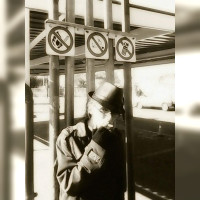When writing procedural fiction, research is the hot, molten core that determines how good your story is going to be. This is especially true when it comes to writing a mystery, where your story depends on thrilling twists, on-point procedure, and accurate finer points, ranging from how a firearm should act to what happens to a human body after death.
It takes a lot of research to get procedural fiction right, but it doesn’t have to be a complete mystery. Here’s how to approach intensive research for your mystery fiction novel or short story by jumping right into the deep end.
Learning Procedure
Successful mystery fiction relies on understanding proper and legal police procedure. If a real detective can read your novel and not find a single error in procedure, you’ve done your job well – and you’d be surprised at just how many detectives and police officers read detective, mystery, and police fiction during their break.
Procedure means things like how suspects will be arrested, how they will be charged, how evidence is collected and processed – and this is all vital information to get right from the beginning.
Let’s not forget about consistency with internal procedure. For example, a wayward cop wouldn’t be able to shoot their way through a chapter like in a Bruce Willis flick and face no consequences from victims or their superiors.
Procedure is different in every country, and sometimes even in every state. If you’re writing about a specific area, it’ll have a specific police station connected to it – and it’s especially important to get your facts straight.
Get in touch with the police station you’re writing about and find out if they would be happy to accompany you through a walk-around of the station: Most are happy to do this, and it gives you a basic framework to go with.
Know where to draw the line when making fiction reflect real life. Your fictional officers can’t correspond to anyone actually working at the station.
If you don’t know something about procedure, there are 3 ways to get the information:
- Search it online first.
Search engines are a huge pit of information – though, keep in mind that not all of it is correct. Still, you can find a lot of information just by searching the right keywords. Use authoritative and official sources at all times. - Look it up in a book.
You’ll build up a good collection of textbooks as a crime writer – and you’ll have a great excuse for the weird library you keep at the same time. For facts you don’t know, sometimes it’s a big help to consult a textbook – though make sure the one you’re consulting is the one currently being used by professionals working the beat. - Ask a professional.
The best way to confirm a fact is to ask someone in the career or industry you’re writing in – and this applies as much to fiction writers as it does to journalists. Have a list of resources you can call up in the event of questions like this. Eventually, you’ll build up a good relationship with your sources.
Technically, the fourth way is knowing procedure from the inside – but most writers haven’t worked in a legal or law enforcement career, nor have they ever been arrested.
Researching and Shadowing Real-Life Professionals
When writing a mystery, the value of shadowing a real-life professional is absolute gold.
Here, you’ll see and experience things that you wouldn’t come across anywhere else – and you surely won’t find this kind of information online. It’s living, breathing experience – and you’d be surprised at how many professionals are happy with a visit to their work environment from a writer taking notes.
Send an e-mail with some background on your story, and you might be surprised when you’re able to see the inside of it all. Listen to the person in charge, keep your eyes open, and stay out of the line of fire. Oh, and wear a ballistic jacket. (Before you laugh, I wasn’t kidding about that one – and that’s from experience.)
If and when this is not possible, the internet remains a wonderful resource: There are many case files, as well as case information and weird documented crimes that you can read through to form a background and find out facts.
Getting Rank Right
Every country lists ranks and positions differently – and every rank has a different role when a crime or investigation is involved. Don’t guess, and hold off on any rank puns like “Sergeant Pepper” or “General Knowledge.”
Here are some suggestions for where to look up the world’s common police ranks:
- South African Police Service (SAPS Official Website)
- Police Ranks in the United States (PoliceOne)
- UK Police Rank Structure (PoliceUK)
- Police Ranks in Canada (HierarchyStructure)
Write Laws Right
Procedure and rank aren’t the only things you have to think about when writing a mystery. Criminal law (and sometimes other laws) will also be a huge part of your writing – so make a list of resources and legal experts who don’t mind answering random questions from writers. There are many out there.
Keep in mind that federal and state laws might differ in certain countries. Again, ask a legal expert such as a lawyer or law professor when you aren’t sure how something would be handled in real-life.
It’s advised that you familiarize yourself with any relevant laws as a crime writer, too – so stock up on law books and resources and keep them nearby, especially the country’s relevant criminal act.
Here are a few as a starting guideline:
- The Criminal Procedure Act of South Africa
- US Code 18: Crimes & Criminal Procedure
- UK Criminal Law Act
- The Criminal Code of Canada
Gruesome Facts
Life’s gruesome facts matter when you’re writing mystery fiction. For example, the way things would decompose under certain circumstances – or just what kind of sound a knife makes going into a human body. (Clue: “Thud” or “Thwack,” depending on the knife.)
For these, don’t guess, and don’t rely on what you’ve seen in other fiction. That’s the easy way out. Swallow your pride and go ask an expert (which will usually fall in the realm of a doctor, nurse or forensic pathologist in this case) to make sure you get it right.
They can give you the answer to a lot of theoretical situations for your character, too – but make sure you clarify why you’re asking this, and give your sources some background on your writing career: Otherwise, they might think you’re nuts and put in a call to the police themselves.
More practical research can also be called for: Sometimes you’ll have to get your hands dirty and take a raw Sunday roast to a shooting range, but that’s half the fun – as long as you aren’t breaking any laws.
Writing a Mystery: Further Reading
Remember those textbooks we mentioned earlier? Sure, it looks the same as a serial killer’s Kindle, but you get to say that it’s for research. Here are six excellent ones to get your collection started:
- Crime Fiction and the Law
- Making Crime Pay: The Writer’s Guide to Criminal Procedure
- Forensics and Fiction
- Forensics for Dummies
- FBI Handbook of Crime Scene Forensics
- Practical Homicide Investigation: Tactics, Procedures and Forensic Techniques
Thorough outlining and research is all that it takes to remove the mystery out of writing mystery fiction. Crime can pay when you’re a crime writer – now go out there and create your fictional sleuth!




